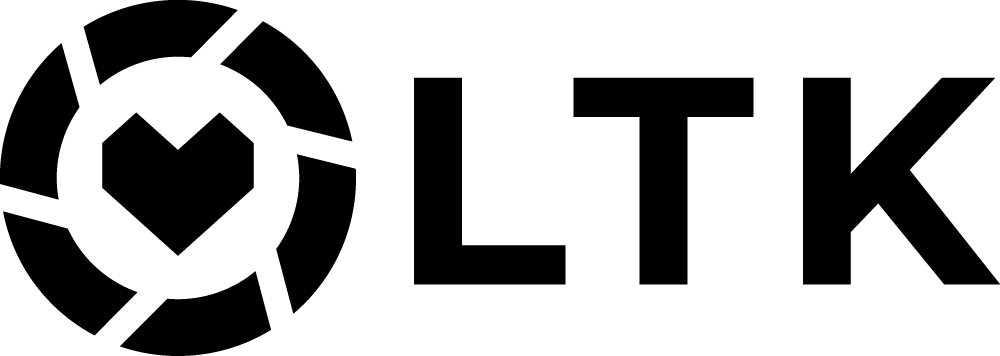
Overview
Influencers catch a lot of flak for any number of reasons. Critics generally dismiss them as a group of lazy narcissists, infatuated with themselves and trying to build careers off the zero-effort activity of taking pictures and posting them. Of course, the most successful influencers are the ones who are no stranger to the grind of work: they’ll put in countless hours to make sure their creative output both fits their standards and can earn them money. And one influencer, Amber Venz Box, just went ahead and launched an entire tech startup to make sure she got paid for the work she did.
In 2010, Venz Box worked as a professional shopper, and she maintained a fashion blog as a way of marketing her services. It didn’t take long for her to draw readers in, and soon enough they were sending her selfies in outfits she’d put together for her blog. As a personal shopper, Venz Box was accustomed to receiving a commission for the stores she’s bringing business to. Online, however, she was cut out of the revenue from her own service. This is how her first app, rewardStyle, was born.
The idea of it was essentially a mechanism for fashion influencers to link their social posts to retailers, who would pay commissions on sales generated by these posts. Influencers loved this, because they didn’t have to jump through the usual hoops to work directly with brands. No collabs necessary—any post became shoppable—and if people in their audience were inspired to buy, influencers got a piece of the action. Getting brands on board was a little trickier when rewardStyle was just an idea; it became a lot easier when they saw the sales numbers of other brands.
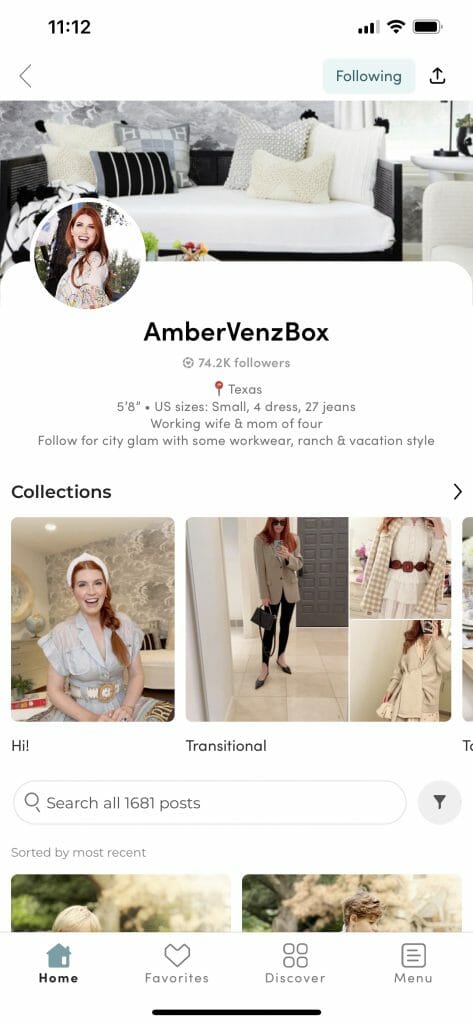

The 2016 acquisition of an image recognition software company called Chappy. It was the first in several technical leaps for the app. In 2017 they developed LIKEtoKNOW shopping app. Today, rewardStyle is called LTK, a kind of hybrid social media and shopping app. LTK has more than 200k curated creators making shoppable posts for the 10m+ users scrolling through the app looking for things to buy. This, of course, excites the more than 6k brands and retailers that have earned a collective $3 billion in annual revenue.
The increased interest on the brand side of things is what led to the development of LTK Connect, an influencer platform that comes with a major incentive for brands: the fruits of their collaborations will also be featured on an app built for shopping that is very popular with people who intend to go shopping. This feels like a sure thing, but LTK Connect is also impressive on its own.
LTK Connect Review:
Pricing
LTK Connect aims to be a solution for brands of all sizes, and this is reflected in the makeup of the different plans—and each plan’s pricing. All plans require a single annual payment; there’s no month to month subscription options.
Connect Launch: $417 per month/ Paid as one annual $5,000 fee
Connect Pro: $1,000 per month/ Paid as one annual $12,000 fee
Connect Scale: Starting from $35,000 annual fee - greatest value for large enterprise
The Details
LTK Connect launched this year (2022, for the confused time travelers out there), but it’s by no means new software. LTK has been running a managed service for brands for years now, helping them find creators, design and manage their campaigns, and reporting data and insights wherever possible. This is the software they built for internal use, and now it’s available as a self-service platform (they still provide full-on managed services, as well). Important to note: customers aren’t just receiving the tools that LTK’s internal team use; they also get access to all the same data—data they’ve been amassing since day one back in 2010.
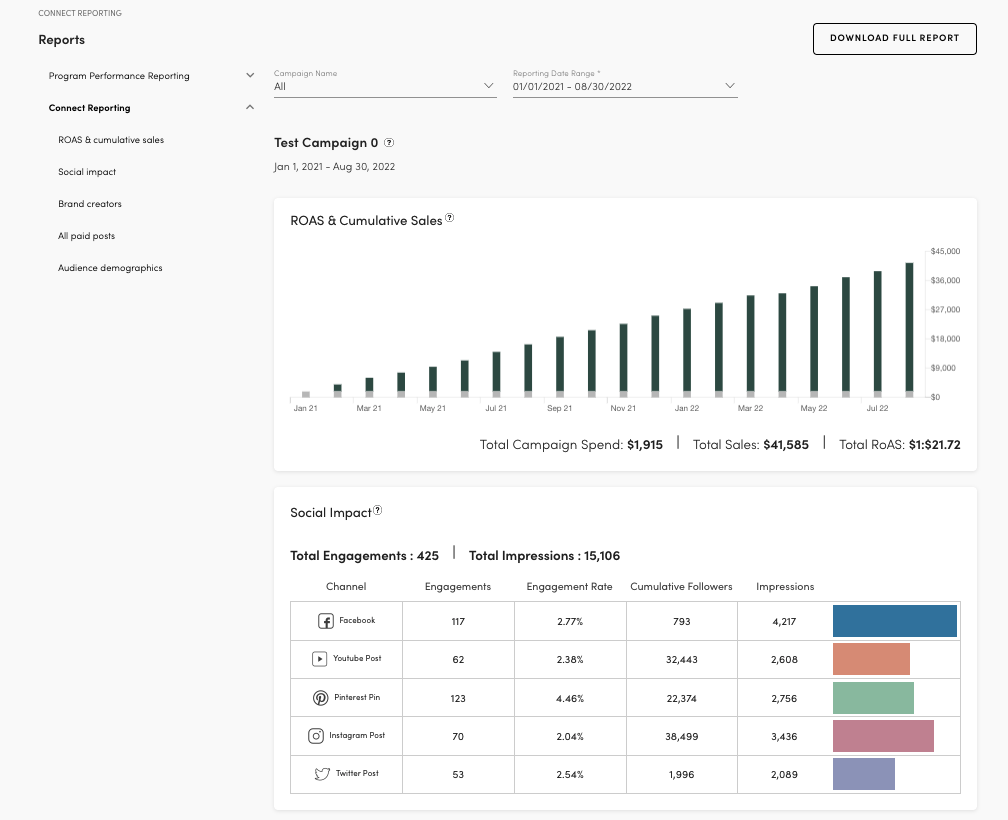

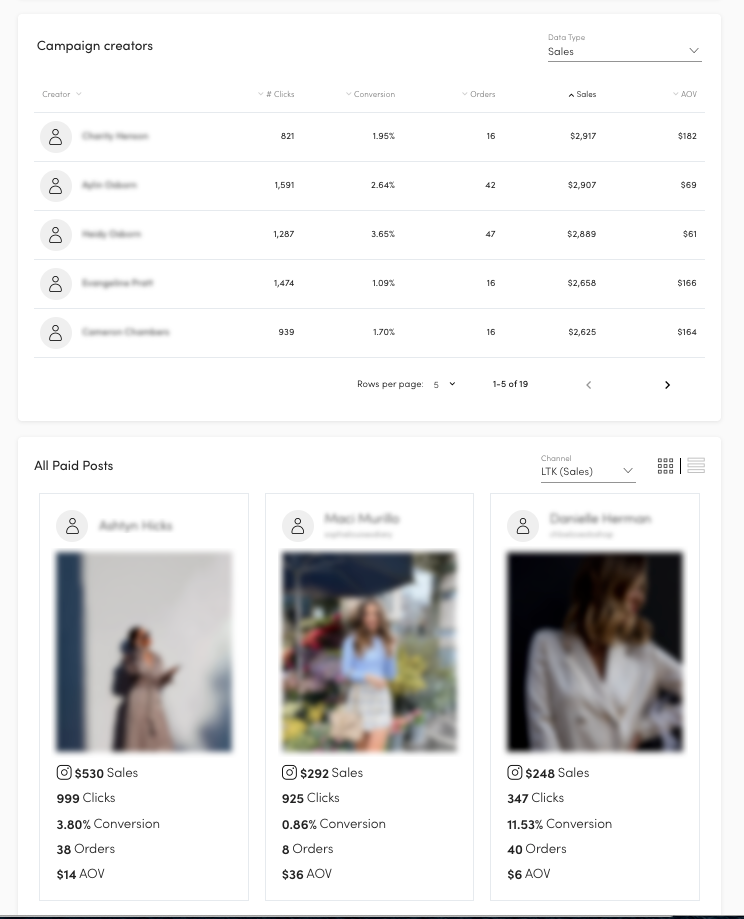

With that deep history in mind, you won’t be surprised by LTK’s liberal use of numbers and data to enhance your experience. Logging into the platform presents you with a lets-get-down-to-business dashboard: you’re immediately presented with a running count of how many offers and how much of your monthly spend is remaining, as well as a nice array of sales metrics—total sales, total orders, conversion rates, traffic source—that you can easily fine tune to any date range.
Prominently displayed at the top of this dashboard is a “Create Campaign” button, and this is where you’ll get into the meat of what LTK Connect can do. At first, setting up campaigns looks a lot like it does on an influencer marketplace, a form where you fill in the details, description, and requirements. It quickly evolves into something quite different, though. For one, every user has someone inside LTK help them set up their first campaign and advise them on strategies and best practices. And that level of assistance doesn’t stop when that meeting is over. One cool feature shows a commitment to both efficiency and detail: select the channels/types of posts you’re looking for and the platform automatically spells out detailed requirements for each (which you can further customize). If you want Creators to make an Instagram Story and an Instagram post, and a TikTok video, you select these from LTK’s menu and the requirements for all three show up.
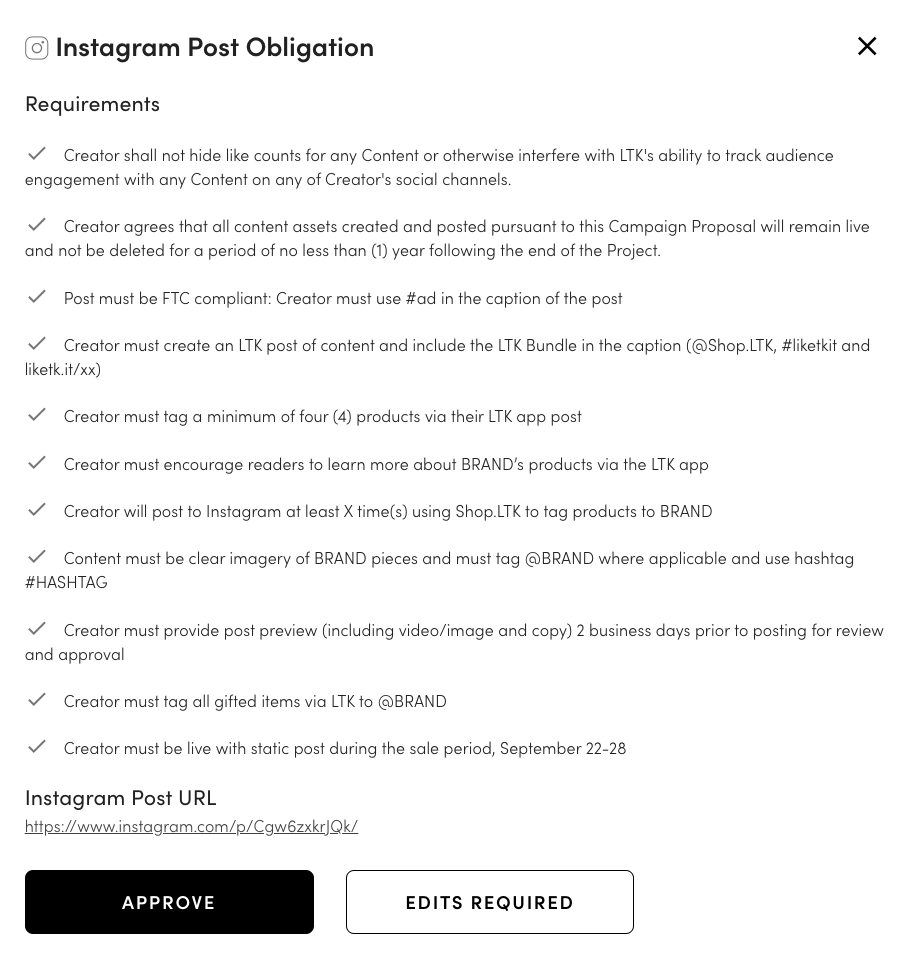

The next differentiator is the Discovery process. Like a marketplace, LTK is a closed system of creators—there’s no searching the whole wide world to find a relevant fit. Unlike a marketplace, LTK’s platform is invite-only, so every creator on the platform has been fully vetted, not just for their skills and talents but for their professionalism. These are people who are here to work; they didn’t just set an account up to test it out. Because of this vetting, LTK also maintains several lists of creators in different categories. Those categories could be verticals—health/wellness, fashion, and beauty, for example—or they could be more business oriented—top converters, up and comers, those sorts of things.
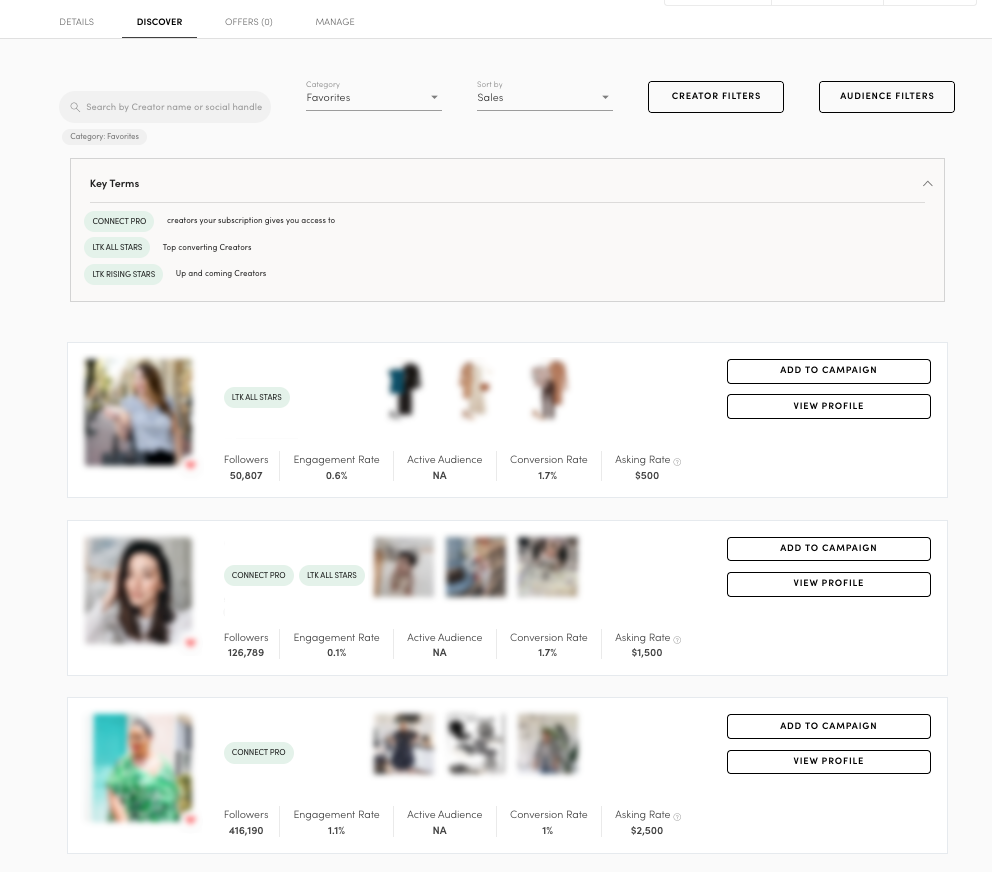

In all cases, you’re getting extremely useful data, even at the most basic level of subscription. The nature of the LTK ecosystem is that you don’t just get a summary of vanity metrics, you’ll also see their conversion rates from other campaigns they’ve worked on. And while you’re free to offer any combination of cash and gifts as compensation, just be aware that the influencers have access to all that data, too. They know what they’re worth, and their asking rates usually reflect this. If you’d like to work with anyone who shows up in your searches, you add them to the campaign but the platform doesn’t notify them just yet. You’ll still have a chance to go through the list of everyone you were interested in and can modify/verify your offers before going ahead and explicitly sending out the invite.
When creators accept their offers, it’s up to them to create the content, upload it, and submit their work for approval on the LTK platform. That cool feature where all the post requirements are created during campaign creation comes back to help again when they submit: creators will have to go through every item on the list and check the requirements off to make sure they’ve satisfied them all, and brands will have a chance to double check that and approve or request changes easily.
The level to which everything is streamlined and made part of a workflow is really admirable. You’ll see this over and over throughout. Brands’ payment methods must be stored and ready to be charged: when a post is approved, payment is automatically sent to creators. There’s a notifications tab at the top of the navigation bar that alerts users to any outstanding actions that need to be taken. LTK’s years of internal experience has resulted in a very thoughtful platform.
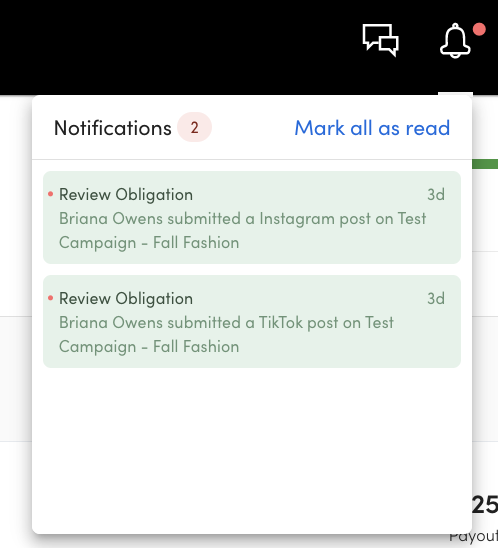

Finally, we come to campaign reporting. As you can imagine, because LTK Connect is so entwined with its shopping app, you’re going to get some hard-to-argue with numbers about campaign performance. There was a time when measuring influencer performance was a matter of debate—how do you measure ROI on brand awareness? LTK renders questions such as these moot. Sure, you’ll see all the metrics you’re used to seeing out of an influencer platform, and things like reach, engagement, and sentiment analysis are all important to know. They help you to understand what’s resonating with audiences and make planning for future campaigns a little easier. Metrics like total sales, clicks, conversion rates, average order value, and return on ad spend, on the other hand, are very much focused on tangible results. And they’re presented in an easy-to-read layout with simple visualizations to really punctuate those results—leaving no question as to whether the investment in LTK Connect was worth it.
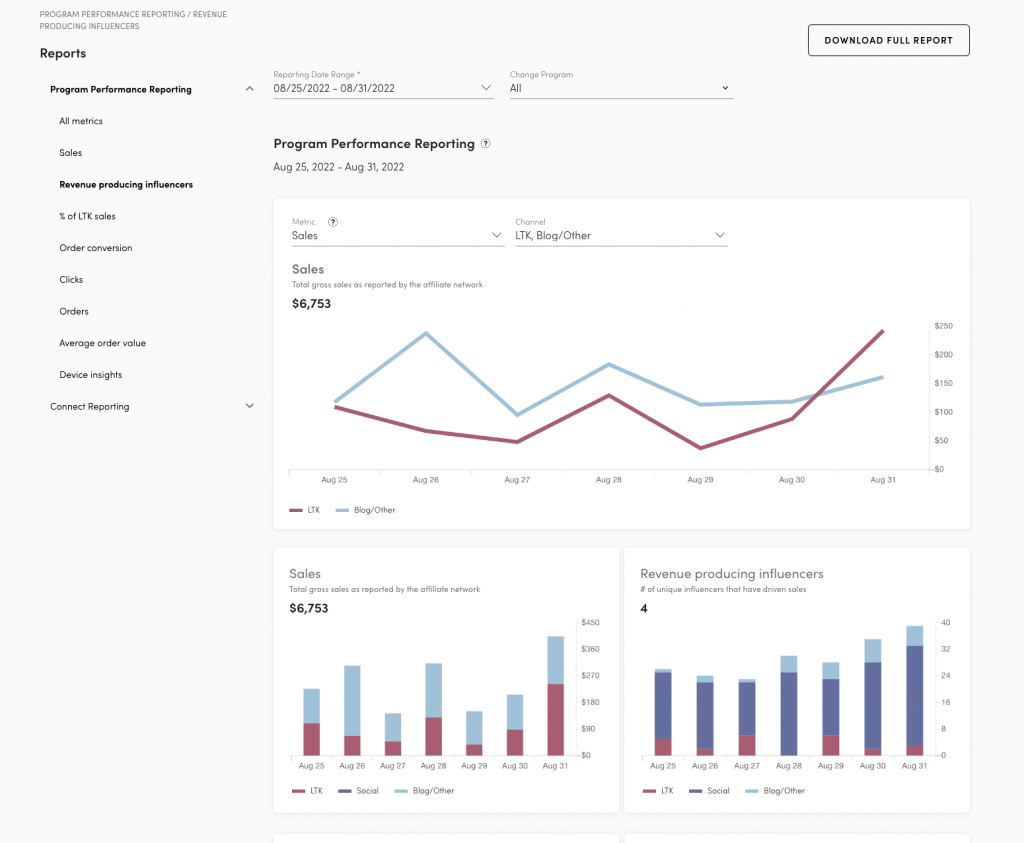



Conclusion
In analyzing LTK Connect, we kept wanting to refer to it as an influencer marketplace. At a high level, it certainly seems like one. But as we tried out the software and learned how it worked, we came to the realization that not only is it NOT a marketplace, it pretty much flips that idea on its head.
Marketplaces as we know them are web or mobile apps where people who are or want to be influencers sign up and look for brand opportunities. The brands hold all the cards; creators respond to open calls for collaborations, and brands can take or leave them. Getting chosen gives the influencer credibility, not the brand. Because of LTK’s shopping app, brands are clamoring for eyes in the creators’ space. The creators are proven brands of their own, were asked to be on the platform, and come with sales data to back up their worth. A “Yes” from an LTK creator gives the brand credibility, not the influencer. And it also seems to make the brands a ton of money in the process.
LTK Connect
-
Features
-
Ease of Use
-
Reporting




